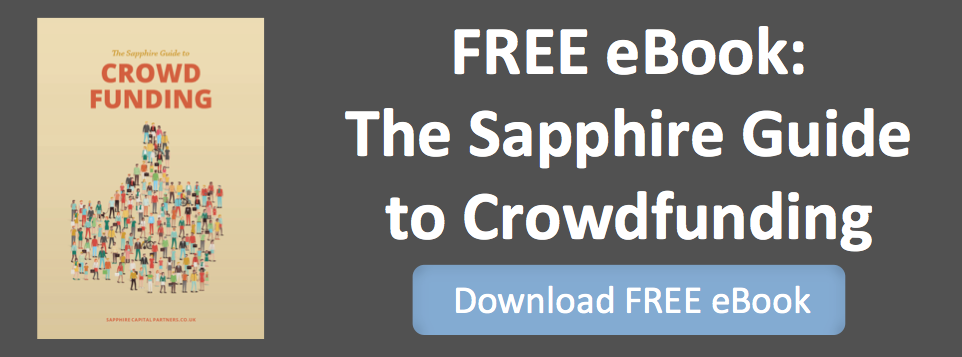
For some time the team at Sapphire have championed the use of crowdfunding and angel investment platforms. They continue to provide businesses with a stage to present their investment opportunity and the administrative systems to accept investment in an orderly manner. This has been achieved by the use of new technology and design of efficient business processes.
It’s important to remember that a crowdfunding raise or listing on an angel platform is the same as a traditional approach to the market by a business looking for investment. These are the key questions that a business owner needs to consider before starting a raise:
- Is your business investment ready?
- How much do you want to raise?
- What is your valuation?
- How will this affect your current cap table?
- Have you arranged your EIS?
- Do you have a lead investor?
- Which is the right platform to promote your raise?
- Do you have resources to support a raise?
- How long is your cash runway?
- How wide is your investor network?
- Do you want to hold a public raise?
- Will this be the last time you go out for funding?
- Do you have an exit strategy?
- Do you need help?
These fundamental questions are common across all sectors and business types but the answers will have different levels of importance, depending on the equity fund raising strategy.
What crowdfunding or the use of angel investment does is put a lot of these questions first. Unlike a traditional raise when the due diligence is carried out by individual investors before and after funds have been committed, the platform carries it out before they accept a firm onto the platform. This can put a lot of pressure on the business and takes considerable time, but the result is that funds committed come through to the business a lot faster if the campaign is successful. This due diligence helps separate out the firms that are investment ready and those which are not. It’s worth noting that a business rarely gets a second chance to approach a platform, so it’s important to be investment ready before your first approach.
Another common characteristic of an equity raise is that there are existing share holders to consider and consult with, a lead investor often representing the crowd and new investors. While planning is very important the position of these people or entities is often fluid with historical commitments being met or not, new pledges being kept or not and unexpected options being presented to the business. The business therefore needs the stability, leadership and resources to cope effectively. Resources are important as it’s difficult for a business to make these decisions if they are fighting to keep the lights on.
The importance of a lead investor cannot be underestimated when approaching a crowdfunding or angle platform. They will expect at least 40% of the raise to be accounted for before the digital campaign begins.
Planning and support is crucial. A good accountant and lawyer can help ensure the practical considerations are taken care of and they can be available to answer questions. An experienced and engaged board of directors is also essential to provide support and encouragement.
We can provide support with planning and implementation of a raise using a crowdfunding or angel platform, so please get in touch with us to discuss your needs. Speak to us, we are happy to help.



